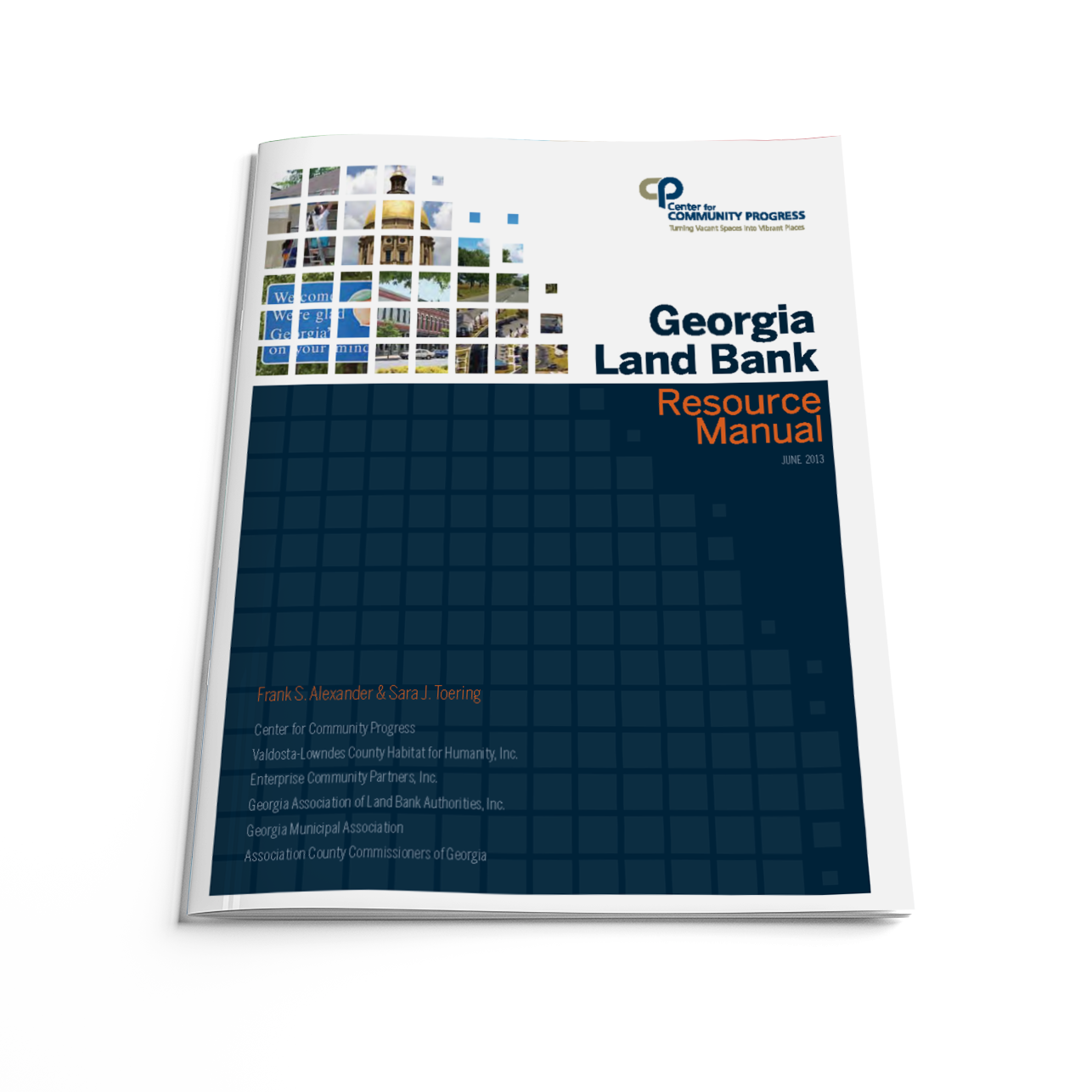
Georgia Land Bank Resource Manual
A Guide and Toolkit for Land Banking Professionals
Topic(s): Land Banks, State/National Analysis
Published: June 2013
Geography: Georgia
Author(s): Frank S. Alexander (Co-Founder and Senior Legal and Policy Advisor), Sara Toering (Senior Fellow)
Land banking in Georgia has a history of almost thirty years, yet in many ways is still in its infancy. The enactment of the Georgia Land Bank Act in 2012 opened the door to a new era of regional collaboration, focused initiatives on particular problem properties, and the conversion of vacant spaces into vibrant places.
A collaborative of nonprofit organizations, including Center for Community Progress, released the comprehensive Georgia Land Bank Resource Manual to guide stakeholders through the process of creating new – and working with existing – land bank authorities. The Georgia Land Bank Resource Manual includes the history of land banking in Georgia, key statutes, and considerations for land bank operations. The bulk of the Resource Manual, however, consists of legal templates to directly aid implementation, including intergovernmental contracts, administrative policies, a land bank depository agreement, and a tax extinguishment resolution. These templates will help new land banks get off the ground and help existing land banks operate under the 2012 Georgia Land Bank Act.
This manual has been prepared with one simple goal in mind – to provide assistance to counties and municipalities in Georgia struggling to deal with growing inventories of tax delinquent, substandard, deteriorating and foreclosed properties. A land bank will not solve all issues of a declining economy. A land bank is not a substitute for efficient and effective property tax enforcement; nor is a land bank a substitute for clear and creative land-use planning. It is, however, a tool that can make a difference when the focus is predominantly on those properties that have largely been abandoned by the marketplace, or are otherwise inaccessible to the marketplace.
Topic(s): Land Banks, State/National Analysis
Published: June 2013
Geography: Georgia
Related Publications
Other Related Content
Get the latest tools, resources, and educational opportunities to help you end systemic vacancy, delivered to your inbox.
